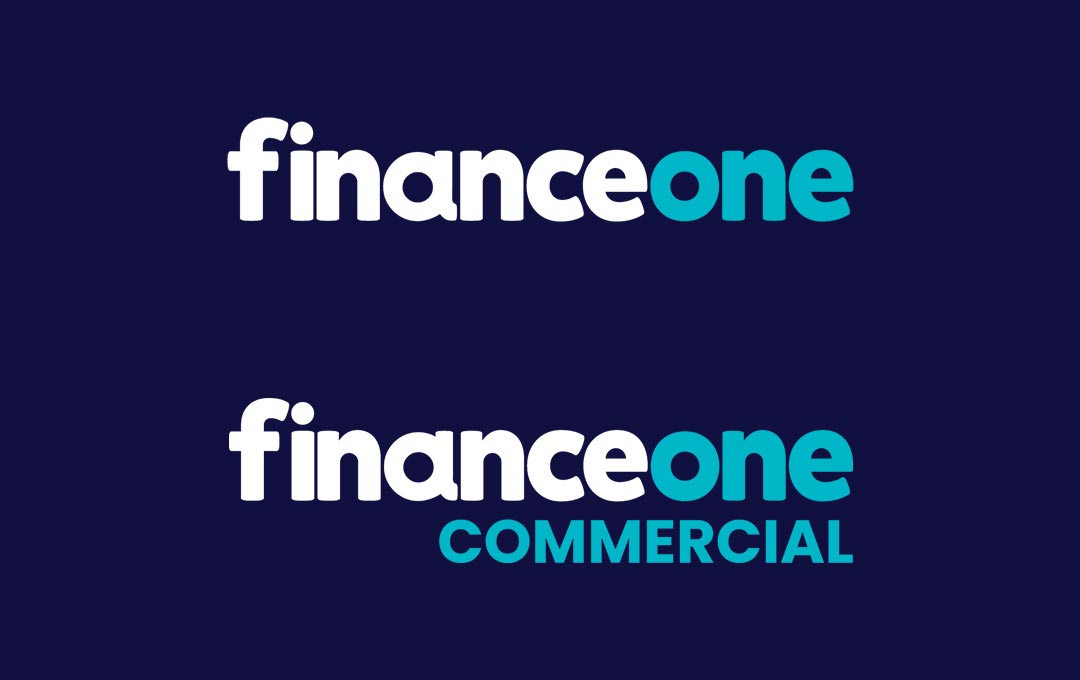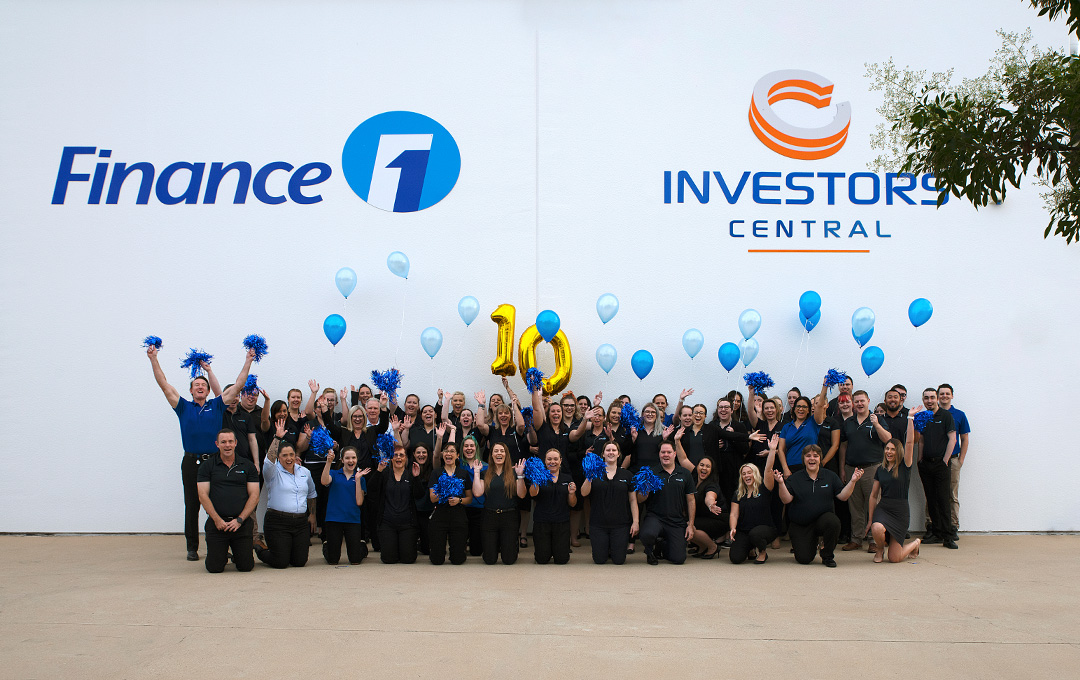Bankruptcy is usually a last resort, but unexpected life events can force many Aussies down that path. But don’t worry, there’s light at the end of the bankruptcy tunnel.
If you’ve come out the other side and need a car, you might be wondering how to get a car loan after bankruptcy. If you’re now a discharged bankrupt, you’re not out of options. Whether you’re looking for a trusty used car or something fresh off the lot, getting vehicle finance after bankruptcy is absolutely possible. At Finance One, we believe everyone deserves a fresh start, and we’re here to help make that happen, even if your credit history isn’t perfect.
What exactly is bankruptcy?
When you declare that you cannot pay your debts, the legal process is known as bankruptcy. Once you’ve declared bankruptcy, you may be released from your obligation to repay some of your debts.
In Australia, your period of undischarged bankruptcy lasts for three years and one day and can potentially impact your ability to borrow money in the future. Once your period of bankruptcy ends, you’re considered ‘discharged’ and are referred to in the credit world as a ‘discharged bankrupt’.
How does declaring bankruptcy affect my credit file?
Once declared bankrupt, you can be given a fresh start by being legally released from all of your debts. There are, however, some serious impacts of declaring bankruptcy:
- Your credit rating is seriously impacted
- The details of your bankruptcy remain on your credit file for up to five years
- Your details will appear permanently on the National Personal Insolvency Index (NPII)
- Depending on your profession or trade, having previously declared bankruptcy can restrict your employment options
Finance One is a specialist lender who can help people with bad credit
Including discharged bankrupts. If you require car finance or personal finance after you have been discharged from bankruptcy, we can help.
How long after bankruptcy can I get a car loan?
While your bankruptcy details will stay on your credit file for up to five years, or up to 2 years after the end of your bankruptcy, you can apply for a car loan as soon as you’re discharged from bankruptcy, . At Finance One, we specialise in helping people who have been through bankruptcy, so you don’t have to perfect your poor credit history to get finance. Keep in mind that having a steady income, managing your expenses well, and keeping any other debts under control can make a big difference in getting approved after bankruptcy.
How hard is it to get a Car Loan after bankruptcy?
As you may expect, discharged bankrupt car loans require assessment on a case-by-case basis and aren’t as cut and dry as other forms of vehicle finance out there. This doesn’t mean a discharged bankrupt applicant can’t borrow money for a new car. Working with a bad credit lender is the best way to give yourself the best chance of accessing car finance if you’ve been bankrupt.
At Finance One, we welcome vehicle finance applicants who:
- Have a regular income, even if it’s self-employed income
- Are looking for secured car loans between $5,000 – $150,000*
- Are at least 18 years of age
- Have defaults on their credit file, have poor credit or are discharged from bankruptcy
What do lenders look for after bankruptcy?
When applying for a car loan post-bankruptcy, lenders will take a close look at more than just your credit score. They want to see signs of financial stability, things like steady income, a manageable amount of existing debt, and whether you’ve been making payments (like rent, bills or other loans) on time since being discharged. They’ll also assess how much you’re asking to borrow and whether the vehicle will be used as security. The more evidence you can show of responsible money habits, the better your chances of getting approved. It’s also important to be realistic with your next purchase by choosing a car that fits comfortably within your budget to help avoid falling back into financial hardship. While lenders like Finance One are here to help you get back on track, we also want to make sure you don’t end up in financial stress again.
Loan repayment options
When applying for a car loan after bankruptcy, one of the most important aspects to consider is how you will manage your loan repayments. We understand how important it is to stay on top of repayments, especially after bankruptcy. That’s why we offer flexible repayment options designed to suit your individual needs and financial situation. Whether you prefer to make weekly, fortnightly, or monthly payments, we can tailor the repayment schedule to align with your income flow. This ensures that your loan payments are manageable and won’t strain your budget, helping you avoid further financial stress as you work to rebuild your credit.
We also understand that life can be unpredictable, so if your circumstances change, we are here to offer support and potentially adjust your repayment terms. Our goal is to help you get back on your feet, not put you at risk of falling into financial hardship again.
Apply for a Bad Credit Car Loan with Finance One
Many lenders provide car loans and personal loans, however, Finance One is a specialist lender who can help people with bad credit, including discharged bankrupts.
Understanding your insolvency options
If you’re feeling overwhelmed by debt, it’s important to know that bankruptcy isn’t your only choice. There are several insolvency options that could help you manage what you owe and avoid the long-term impact of going bankrupt. Here are some alternatives that may offer the breathing room you need while you figure out the best path forward.
Temporary debt protection (TDP)
If creditors are knocking at your door (or inbox), a TDP provides you with protection for 21 days from being pursued by unsecured creditors, until you can work through your options.
A Personal Insolvency Agreement
Personal insolvency agreements are between you and your creditor, where you make an agreement to pay an certain amount either in a lump sum or through instalments.
Part IX Debt Agreement
A Part IX Debt Agreement (also known as a debt agreement) is a formal agreement with your creditors; however, it is usually handled by a third party administrator on your behalf. In a Part IX debt agreement, the administrator proposes an amount to your creditors. Instead of paying each creditor individually, you make payments to your registered debt agreement administrator.
Part IX Debt Agreements are not considered to be the same as bankruptcy, however, they will still show on your credit report for five years from the date you enter into the agreement and may have some other serious impacts. A Part IX Debt Agreement will also appear on a public register...
Six tips for improving your credit file after bankruptcy
For those looking to turn the corner after bankruptcy, steps can be taken to build back their credit file.
1) Create a budget and stick to it
Sitting down and setting a budget is a great way to monitor your income and outgoings, build up your savings and demonstrate that you are responsible with your income. Seeking professional advice from a financial practitioner can also be beneficial regarding cash flow and budgeting.
If you’ve gone through the bankruptcy process, you’ll likely have come across some resources for financial counsellors. Financial counselling is a wonderful way to set proper habits to lay a foundation for a solid financial future.
2) Stable employment
Holding a stable income is a great way to build financial security and improve your credit worthiness.
3) Reduce loan applications
Make sure you do your research before applying for finance. Even after you’re discharged from bankruptcy, excessive credit applications can negatively impact your credit score as it can demonstrate to lenders that you are living outside your means.
4) Make any credit repayments on time
Did you know that paying your utility bills, such as phone, internet, gas or power, can influence your credit score? Ensuring you make timely repayments on any accounts will generally positively affect your credit score.
5) Keep your bank account in the green
Your bank account conduct is now recorded on your credit file. Keeping your bank account in the green can help keep your credit score stable and avoid overdrawing fees from your financial institution.
6) Find a specialist lender for bad credit Car Loans
Obtaining bankruptcy car finance can help build back your credit rating if you make all repayments in full and on time. Car finance for bad credit applicants can help provide evidence that you can take out further loans and complete the required repayments.
As mentioned above, applying for multiple credit products quickly can harm your credit score. This is why it is important to find a lender willing to work with you as a discharged bankrupt. We specialise in offering car loans for discharged bankrupts, providing you with the opportunity to rebuild your credit while driving away in the car you need.
Can I get pre-approved for a Car Loan after bankruptcy?
Yes! Getting pre-approved for a car loan after bankruptcy can be a smart first step. Pre-approval gives you a clear idea of how much you may be able to borrow before you start car shopping. This helps you set a realistic budget and shows sellers you’re serious. More importantly, it can also reduce the stress of applying for finance post-bankruptcy by giving you some upfront clarity about your options, without impacting your credit file multiple times.
How to get a Car Loan after bankruptcy
When you apply for a car loan after bankruptcy, understanding interest rates and loan payments is essential to finding the right solution for your budget. While interest rates may be higher for those with a past bankruptcy, the good news is that there are still plenty of affordable options available. At Finance One, we focus on offering competitive rates and flexible repayment plans tailored to your financial situation, so you can drive away in the car you need without financial stress.
If you’ve been discharged from bankruptcy and need a car loan, it’s possible to get back on track with the right support. At Finance One, we understand that your past financial challenges don’t define your future. If you’re looking for car finance after bankruptcy, we’re here to help, whether it’s for a used car or a new one.
We specialise in working with people who’ve been through tough times (including bankruptcy) and we’re here to help you rebuild. Our team will assess your current financial situation, considering your income, debts, and repayment history, and help you find a loan that suits your needs. We believe everyone deserves a second chance, and we’ll do our best to make that happen.
Contact our understanding team today to find out more about how we can help you purchase a car after bankruptcy.
Apply Now
*Normal lending criteria, terms & conditions and fees & charges apply.
Disclaimer: The information above is of a general nature only and does not consider your personal objectives, financial situation or particular needs. You should consider seeking independent advice regarding your legal, financial, taxation or other needs, to check how the information relates to your particular circumstances. We do not accept responsibility for any loss arising from the use of, or reliance on, the information. All loan applications are subject to normal lending criteria. Fees and charges payable. Terms and conditions apply.
Fin One Pty Ltd – ABN: 80 139 719 903 Australia Credit Licence: 387528




